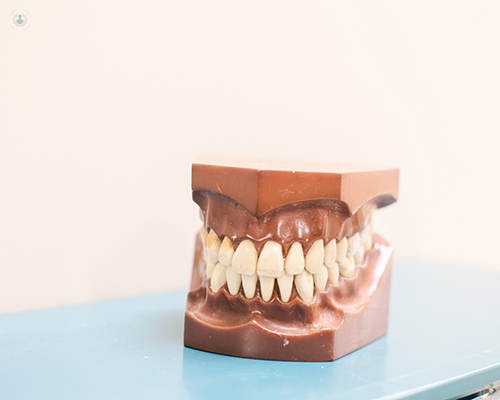What is malocculsion?
Written by:Dr Moira Wong, a leading orthodontist, explains what malocclusion is and why you should seek dental help for it.

What is malocclusion and why is it bad for my teeth?
Malocclusion is simply a misalignment between the upper and lower teeth. This can be caused by the teeth being in the wrong position alone or both the teeth and the jaws being in the incorrect arrangement. This misalignment can result in crooked, crowded or protruding teeth. It can also lead to gum problems, headaches and even sleep problems.
Malocclusion may also be referred to as crowded teeth, cross bite, overbite, underbite or open bite.
What are the most common types of malocclusion?
There are three main types of malocclusion:
- Class I is where the teeth are at fault only. This can range from crowding to crossbites which can prevent the jaw closing centrally, so the centrelines of the teeth are in the wrong position.
- Class II is where the teeth and the jaws are at fault. Usually the lower jaw is set back too far and there is an increased distance between the upper and lower teeth. Sometimes these are referred to as "buck teeth."
- Class III is where there is a discrepancy in the teeth and jaws such that the lower jaw is prominent relative to the upper jaw.
How can malocclusion be treated?
Treatment is dependent on how much the teeth contribute to the malocclusion and how much the jaws contribute to the malocclusion. If it is teeth only then the malocclusion can be corrected with a variety of different braces. If the jaws are contributing, then the decision needs to be made as to whether we move the teeth in a position to compensate for the jaw malposition or whether we aim to correct the jaw position.
For cases of malocclusion in children, we can utilise their growth to enhance jaw correction. In adults where there is no potential for growth, the jaw malposition is corrected surgically. Although this sounds daunting at first, the results are somewhat spectacular and life changing, when carried out correctly by experienced orthodontists and surgical teams.
Can malocclusion be treated easily in adulthood?
As long as the correct diagnosis is made in the beginning, treatment in adulthood is no more complicated than treating during childhood in experienced hands that have undergone the appropriate training.
If you are concerned about your teeth, make an appointment with a specialist.


